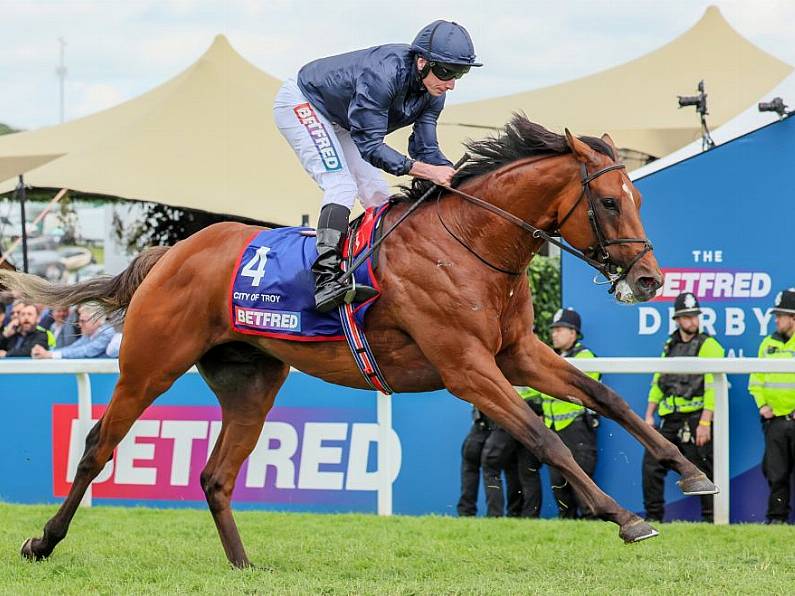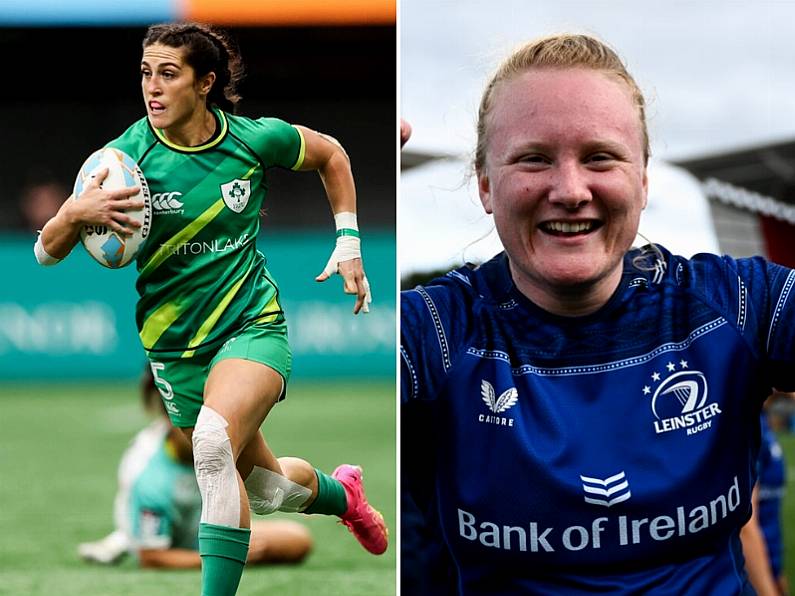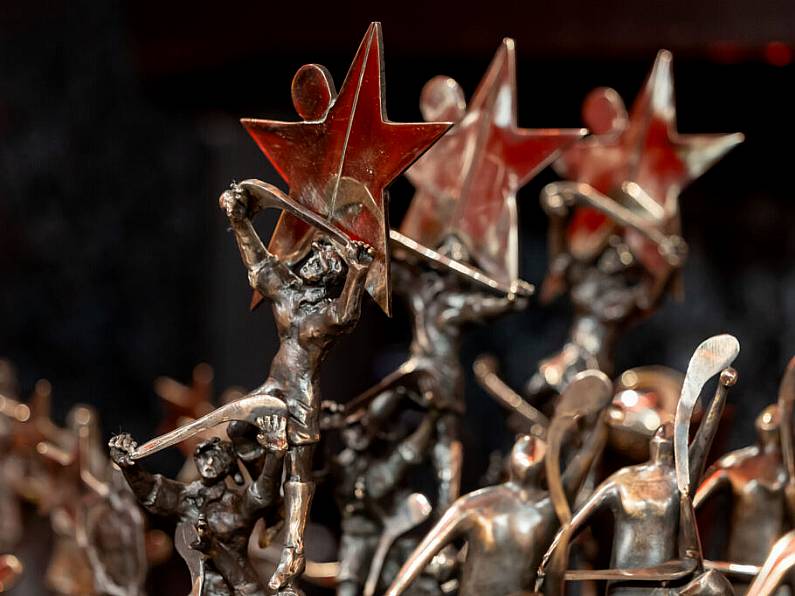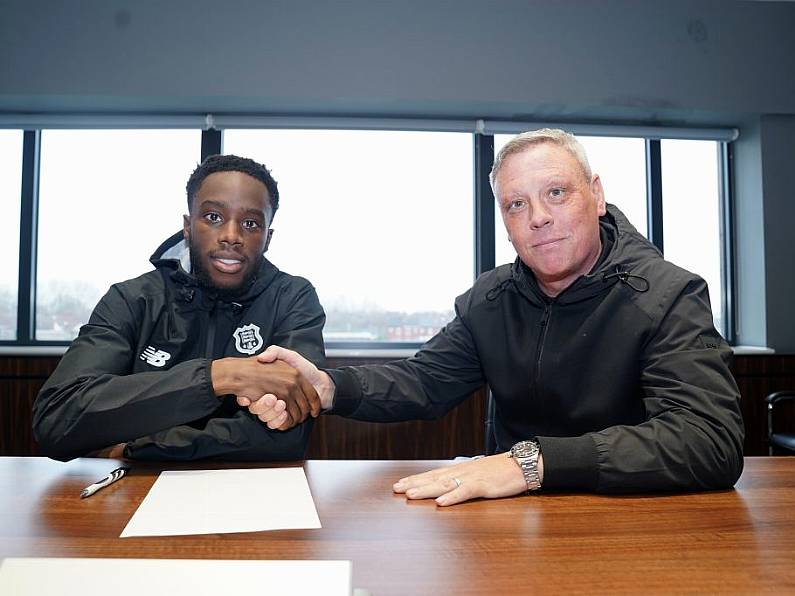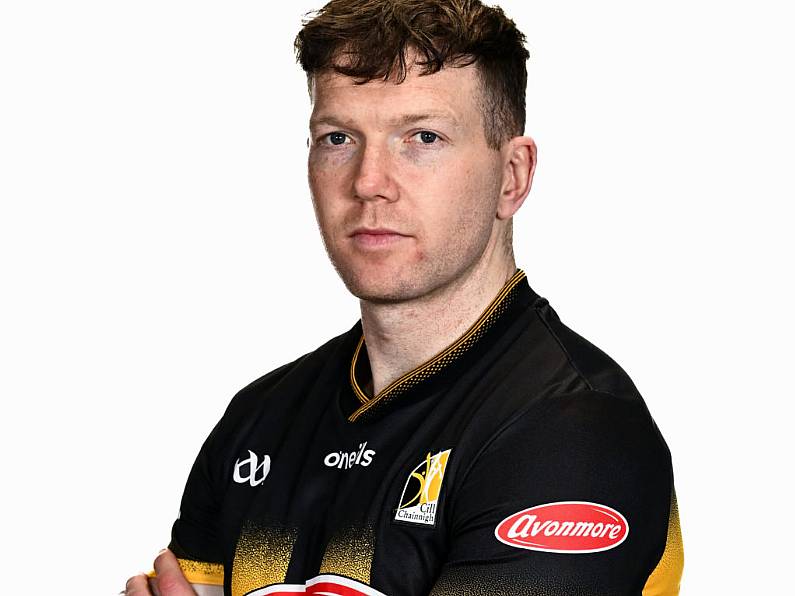In the second part of our exclusive behind the scenes look at the Jockey Pathway Programme, Daragh Ó Conchúir finds that the changing mindset towards physiotherapy and sports psychology is already changing lives of young Irish riders for the better.
PHYSIOTHERAPY
"If you were to get yourself a little tripod and sit outside the weigh room and watch the lads that walk in and walk out; some of the lads have dealt with ailments all their life and they walk in a particular way, one shoulder is lower than another, they limp and are okay with that. They’re just small problems that have never been looked after and they get used to living with them. I’ve done that too but it doesn’t serve you in the long term.
— Katie O’Farrell
This was undoubtedly the easiest sell. Galway-based physio, John Butler had been contracted to provide a service at tracks in recent years. Therese Leahy is one of Butler’s practitioners who filled in occasionally. When a physio was required for the Pathway, she was happy to lend her talents.
“The problem with the on-track service is it’s kind of patch up and go,” Leahy details. “You can’t do anything properly treatment-wise, you’re just getting them ready to get through the next few hours, whereas my services up in RACE (Racing Academy and Centre of Education) are trying to be more about rehabilitation and putting in a proper rehabilitation plan and getting them to follow that, rather than getting them through the next few hours.
“Now we’re tackling ongoing injuries that have been problems for the last few years but we never really got to the bottom of because we were only scratching the surface with the track services. If you ever had a tough physio session, you’re ready for bed afterwards so we can’t go into that depth on the track. But me being up in RACE, I get a full hour with them and address what has been recurrent over a period of time.
“Also what we’ve been looking into recently, which was an aim of mine when I started, was looking at injury prevention strategies. Adrian (McGoldrick) and SarahJane (Cullen) have done a lot of research on injuries and have great figures on what injuries are most apparent, and concussion, so we can use those figures and say ‘What can we introduce here?’”
Katie O’Farrell illustrates the benefits perfectly.
“Therese was looking after my ankle but an old shoulder injury was never really treated because I didn’t break anything so I carried on,” O’Farrell explains. “It never healed properly. It took weeks but she got it sorted out. She irons out any creases you might have. And it’s the simplest thing in the world to go see her, or any physio for that matter. It keeps things in line and just prevents more problems because you’re always going to be compensating for something. Whether we like it or not, we’re gonna get knocks, we’re gonna get bangs and no matter how well conditioned you are, it’s gonna have an effect and hurt you in some way.”
Leahy sees the traditional bravado giving way to the obvious benefits.
[quote]I would have worked a lot with the likes of Barry Geraghty and he said ‘If this was around when he was starting out, I could have avoided so much of the problems I have now.’[/quote]
“It’s even about them being more of aware that when they are feeling pain, that they can actually come to us and we’re not going to stand them down but we can address it, rather than waiting until it becomes an actual problem. Especially considering that the majority of their injuries aren’t muscle tears like what we would be seeing with rugby. They’re fractures and contusions and stuff like that.
“The problem with that is that they are going to get cleared by orthopaedics but it’s the compensatory mechanisms then that become the issue. But now they’re starting to come to me straight away when they come out of a cast whereas before, you wouldn’t have seen them until a few months down the line and they’ll have been crippled.
“Initially I think the younger guys were almost a little bit cautious of reporting, that they felt they just had to shut up and deal with it. The older guys are very good. We would work with Davy Russell, Barry, Robbie Power very regularly, because they have so many ongoing issues. When the younger guys saw that going on they bought into it.”
SPORTS PSYCHOLOGY
[quote]I was trying to lose 10 or 11lbs in a day... I had no life, especially the last year I was doing it, I just had no life. It was riding out in a sweatsuit. If you don’t have time to sweat in the bath you’re in a sweatsuit in the car and then you’re sweating when you get to the races. Then you’re riding. If it gets a run on you it’s a vicious circle. The more you lose the more you put on; it’s not just the physical, it’s the mental part of it, you’re just not in a good place. You’re angry all the time.[/quote]
— Timmy Murphy, Irish Independent, April 14, 2018
[quote]It’s not anything to be ashamed of. It’s not a weakness. I went to Ciara and continue to go to her as a strength, to improve, to continue to strengthen my performance and improve my ability to perform.[/quote]
— Katie O’Farrell
Timmy Murphy was a supreme pilot, a Grand National winner and multiple Grade One victor. Injuries forced him to convert from jump racing to the Flat in 2015. The Kildare man did not have the physique for the level however and announced his retirement in May, aged 43.
His words to Michael Verney, quoted above, are haunting and relate just why sports psychology is an essential service in racing. Yet if physiotherapy might have been the easiest sell, sports psychology is definitely the hardest.
There is much more to sports psychology than dealing with mental health problems but that is all that people think about when they hear the words. That suggests weakness and weakness is anathema to a jockey.
In 2015, Mark Enright went public about the challenges he had faced due to depression and the fear that owning up to it could impact negatively on his profession. In the end, he realised that it would be cathartic and might help others.
Adrian McGoldrick reported a massive increase in the number of people from the industry coming into his general practice describing similar symptoms in the days and weeks that followed.
SarahJane Cullen and her WIT colleague Ciara Losty undertook a survey at the time that produced startling results. A staggering 57.1% of professional jockeys exhibited symptoms of depression, stress or anxiety and that figure increased to 65.2% in the 18-24 age group.
A similar study of elite athletes in Australia reported only 27.2% displaying such symptoms, which would be around the average in general population, while specifically in the 18-24 age group of the general population, the Irish average is 28.4%.
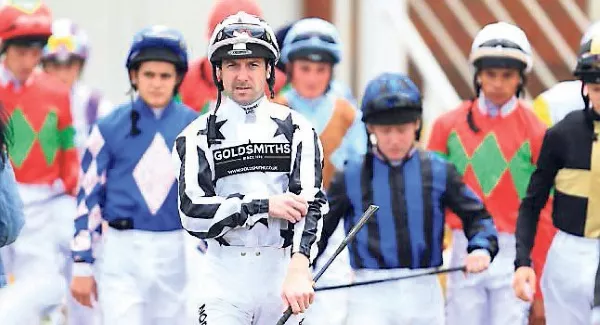
Jockeys can be susceptible to visceral fat if they are attempting to make weight while not on a healthy diet.
Off the back of that, the IHRB has funded PhD student Lewis King to investigate mental health in jockeys and what the key predictors might be. Identifying these predictors — and it would not be a surprise to see weight, injury, job uncertainty and history of concussion to be just some of those — will enable interventions and support to be provided.
CARE (Careers and racing education) set up a 24-hour helpline last April. The Pathway secured Losty’s expertise for one-on-one sessions. Like her WIT colleague, Losty is so highly rated in her field that she was a key member of the support staff for Ireland’s last two Olympic teams, as a sports psychologist.
Losty provides clinics in RACE two evenings a month. Any licensed jockey, professional or amateur, can make an appointment free of charge once they sign up to the Jockey Pathway.
“One side is really about enhancing performance. So you’re talking about certain mental strategies, visualisation, self-talk, relaxation. Recovering from injury is a big thing as well. Tolerating pain during rehabilitation. Managing anxiety and nerves when you’re returning to racing as is also a big issue.
[quote]One of the other big things is performance lifestyle issues. Making their weight. I know that’s physiological, it’s strength and condition, it’s diet, but the adherence to those programmes, increasing their motivation to tackle any concerns about making weight, is psychological.[/quote]
“They’re also self-employed so they’re chasing work. You’re in a very odd sport. It’s the only sport that you probably lose 98% of the time! Even if you’re on a junior B hurling team, you wouldn’t lose that much. So you’re coping with the pressures of racing. Your last performance dictates your future rides as well so helping them deal with pressure from trainers, parents and their own expectations as well.
“There are some key issues around enjoying their sport. And there are key mental health issues as well — promoting healthy self-esteem, educating them around mental health, anxiety, mood, relaxation, that type of thing, challenging their thinking, cognitive restructuring.”
These were all concerns for Katie O’Farrell, who is emphatic in asserting that the improvement in her fortunes this year can be attributed to the Jockey Pathway, with access to Losty the most fundamental game changer.
“Ciara has been the biggest asset to my career,” O’Farrell reflects. “I was in a difficult place for a while because I was coming back from being out so long and trying so hard to get myself back on the map. And then you’re always dealing with confidence issues at the back of that.
“The main purpose of Ciara would be to help you to maximise your performance. It’s just tools she can give you to cope with different things that would make you feel inferior. No-one should feel that. No-one should feel they’re not good enough because someone won’t put them up on a horse.
“It’s very hard not to take it personally and that’s one thing Ciara has taught me, is that it’s not personal. It’s about a performance. If someone says ‘I’m going to use so-and-so instead of you’, it doesn’t mean ‘I don’t like you as a person’, you’ve got to separate it.
“The smallest thing could just pull at your confidence and that is only going to snowball if you don’t get it under control. It could be something just really simple and all of a sudden you start to have a doubt, which turns into two, which turns into a bad morning, which turns into a bad day and then you don’t make the call for that ride because you think ‘Sure he won’t want me anyway.’
“So it’s knowing how to cope with the little disappointments and focus on taking one day at the time and bettering your own performance.”
The demands on jockeys are unique compared to almost any other sport.
“These women and men are completely on their own,” Losty remarks. “They’re chasing work. They’re going from one yard to the next yard. They set up their own week. It’s a hard lifestyle. They don’t have somebody to talk to often, somebody to ask a question. Was this the right thing? I’m not sure how I feel about that? They don’t have that performance environment around them.
“Ultimately you’re trying to move away from a medical model as in ‘I’m broke, can you fix me?’ How about coming to see me to maintain consistency, to maintain motivation, to maintain your weight, keep the mental health issues on an even keel? So it is a big shift in the culture. The jockeys that do come into me have been really positive and it’s had a great performance impact as well. I’ve gone into some of the academies in RACE as well to plant seeds, to demystify it a bit.
“There’s a wee bit of a change. Some of them are talking to one another and are quite relaxed about saying they do engage and some are highly confidential and they wouldn’t speak about it. It’s definitely a slower burner but what we’ve noticed is that when they come in, they come back. It’s that initial barrier, to break down the stigma of getting them in the door because once we get them in the door I know I can connect with them. I find a language that they can connect with and I’ll be able to work with them from there.”
THE NEXT STEPS
[quote]Driving up to Kildare for physio or to see Ciara, going to the gym every chance I got, getting those sessions in. Even on the days when you couldn’t think of anything worse, getting in there, getting the exercises done, eating properly. All those little things pay off.[/quote]
- Katie O’Farrell
It wasn’t as broad as they wanted initially but the Jockey Pathway works and those running it are excited about where they can take it.
“We didn’t have this when I started and definitely if we did, I’d be a lot better off,” says Billy Lee. “I wouldn’t have half the problems I had with the struggle in the weight. I think it would add a few years onto lads’ careers. It is definitely a big step in the right direction.”
“It’s a package” O’Farrell notes. “If you’re lacking in one side, everything else is gonna suffer the consequences too. I feel strong and when I do light I still feel strong. Knowing I’ve done the work helps me mentally too. Even when I’m dehydrated and hungry, I know I’m conditioned to perform. That’s a big positive in my head.”
What next? Well there is plenty of research going on. Apart from King’s study on mental health, Michael Kiely is looking at the physiological and performance demands on jockeys. The information gathered will be used to inform training guidelines to ensure improved performance and a reduction in the risk of injury.
“Some of them have so many races in a day - are they recovering quickly enough to be good enough for the next ride?” questions Cullen. “There’s research showing now that reduced fitness levels can increase your incidence of falls, so if you could have a protocol to take out a licence ... I don’t know how well that would go down with them, that every year they would have to do a fitness test, but it makes sense.”
Arthur Dunne is investigating bone health in jockeys. A new DXA scan machine with state-of-the-art software is operating out of the Pathway hub in RACE since April. Only scans from any individual scanner can be compared for signs of improvement or deterioration so to have one in the Pathway hub is a “very exciting step in the care of our riders” according to McGoldrick.
Jockeys can be susceptible to visceral fat if they are attempting to make weight while not on a healthy diet, although genetics also come into play. Visceral fat is a contributory factor in heart conditions, strokes, diabetes along with depression.
According to McGoldrick, body fat information could be used to advise riders, where appropriate, to make a career change from Flat to National Hunt. Results of a scan will be sent to McGoldrick, who will recommend lifestyle changes to enhance bone health if required, such as weight-bearing exercises with Wayne Middleton, improved nutrition with Gillian O’Loughlin, calcium supplements or a combination of all three.
Another study is being carried out looking at gut health in jockeys in comparison to other elite athletes, which could lead to the development of a jockey-specific probiotic. Concussion research is ongoing.
The concept of jockey coaching is relatively new but Ireland has two accredited coaches in Warren O’Connor and Gordon Power who can provide important supports too and make referrals to the Pathway’s service providers if necessary.
It is all part of a process to improve the support structures around jockeys and the commitment to do so is being rewarded with a gradual evolution in the culture. Such is the competitiveness of the sport in Ireland, finding that extra one or two per cent could make all the difference.
[quote]When you see the numbers for Wayne’s classes,” says Cullen. “That’s a massive change. I used to develop these little exercise booklets so innocently and I’d go to the jockeys’ house and it’d be there with their coffee cup on it.[/quote]
"They never even looked at it. It’s definitely changed and it’s about getting the right people to buy in so that others will follow suit.” Far from homemade booklets, Cullen now envisions the development of a jockey app, whereby a workout programme or nutritional advice pops up on a rider’s phone.
A key strand of eliciting culture change is for there to be strong role models.
“If I’m sitting next to Chris Hayes or Billy Lee, wondering why they are in the form of their lives, wondering why the man who never had a breakfast is suddenly doing so and still making weight, and obviously stronger as a result, I’m gonna ask why?” reasons Middleton.
“If I’m looking at Rachael Blackmore and the success she’s having, if I’m looking at Patrick Mullins or Declan McDonogh doing something new to get an edge, I’m going to look at it myself if I have any ambition.”
What will ensure its success though is normalising the process for the next generation. RACE and CARE supported the Junior Academy, a pilot programme that provided 10 days of training to more than 100 riders between the ages of 10 and 16.
As well as getting practical riding training from the RACE instructors, the youngsters were introduced to the concept of the Jockey Pathway Programme. This included sessions with Losty (sports psychology), Gillian O’Loughlin (nutrition) and Middleton (S & C). All the while, RACE continues with its invaluable training.
“It’s from this generation on,” Cullen agrees. “They’ll leave here knowing that they have to keep doing exercise and so on. It will make sense for them to continue on as they’ll know how good they’ll feel. It’s not gonna be a chore, it’s just gonna be part of their life.
“We’re at the start but it’s an exciting start.”
For more information go to https://www.workinracing.ie/jockey-pathway/
CARE 24-hour hotline, free of charge text +353(0)86 8383998 for call back, or freephone 1800 303588 (ROI) 0800 243458 (NI)
- You can read part one here


